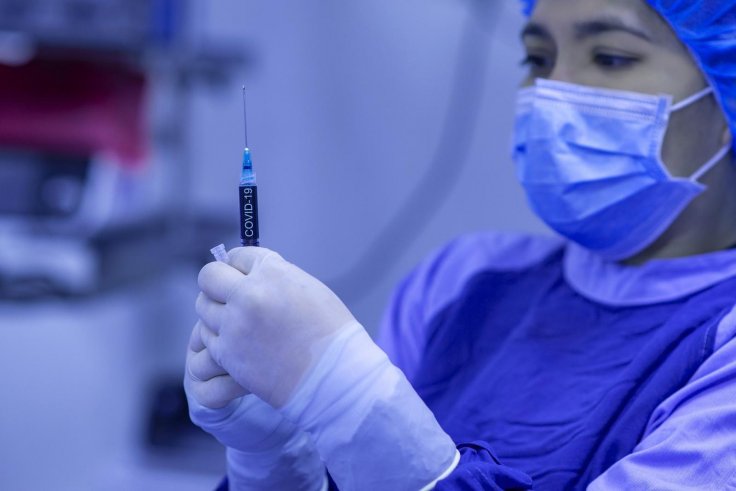ESPN sports broadcaster Allison Williams has decided to quit the network rather than get vaccinated against Covid-19. The reporter is officially leaving the network after having her request for a vaccine exemption denied.
In a five-minute video on Instagram, Williams announced her decision to step down from the network, where she works as a college football and basketball reporter. She explained her decision through the video, saying she is "so morally and ethically not aligned with this" as she and her husband are looking to have another child.
Williams Fears Vaccine Will Impact Her Efforts to Get Pregnant
"Belief is a word I've been thinking about a lot lately, because in addition to the medical apprehensions regarding my desire to have another child in regards to receiving this injection, I am also so morally and ethically not aligned with this," Williams said in the Instagram video. "And I've had to really dig deep and analyze my values and my morals, and ultimately I need to put them first.
"And the irony in all this is that a lot of those same values and principals I hold so dear are what made me a really good employee and probably helped with the success that I've been able to have in my career."
Williams also cited instances of women who experienced fertility problems after receiving the vaccine. "I understand vaccines have been essential in the effort to end this pandemic," said Williams. "However, taking the vaccine at this time is not in my best interest."
Williams announced last month that for the first time in 15 years, she would not be on the sidelines during ESPN's college football broadcasts because she had declined the vaccine. The network made vaccinations compulsory for staffers at live events at the beginning of August, then expanded it to all employees this month, reported USA Today.

Covid-19 Vaccines Cause Fertility Problems?
The CDC, citing several studies, has found no evidence that the Covid-19 vaccines affect fertility.
Covid-19 vaccination is recommended for all people 12 years and older, including people who are pregnant, breastfeeding, trying to get pregnant now, or might become pregnant in the future, according to the CDC.
The CDC states that the evidence about the safety and effectiveness of Covid-19 vaccination during pregnancy has been growing. These data suggest that the benefits of receiving a Covid-19 vaccine outweigh any known or potential risks of vaccination during pregnancy. Pregnant and recently pregnant people are more likely to get severely ill with Covid-19 compared with non-pregnant people, according to CDC.
"There is no plausible reason—no medical or scientific mechanism—for this vaccine to interact with a woman's reproductive organs or have any interaction with an egg that's been released or fertilized," University of Missouri Health Care doctor Laura Morris says.









